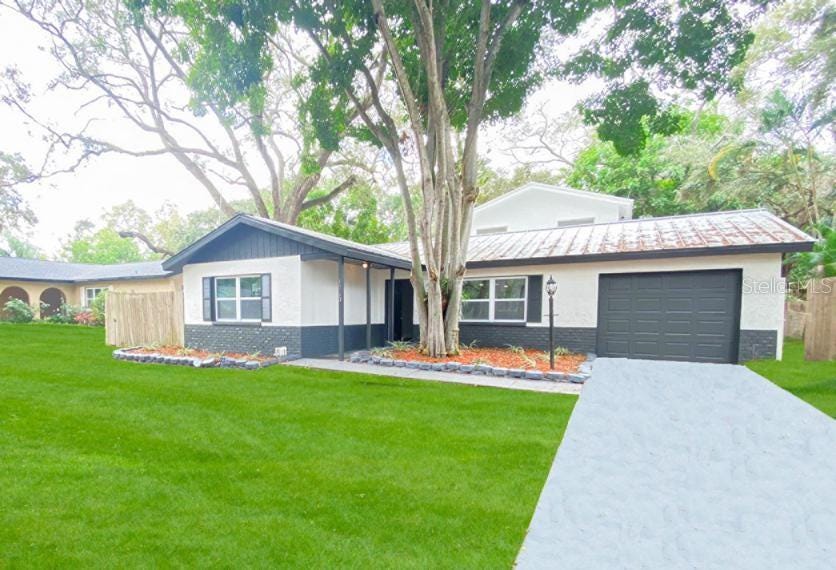How we add value to real estate
In the previous blogs, we explained how to do the job of identifying the deal and finding the money to carry out the project. Now we will increase the dollar value of the property to get it ready for sale or rent. The type of deal will dictate what we do…
Types of Deals
New Construction
Redevelopment (Fix and Flip)
Wholesale
New Construction
This is our bread and butter at the moment. We are buying parcels of land, building entry-level homes on them, and selling or renting them out. Building a property has several steps.
Engineering
This consists of surveying the parcel, developing the plans and specifications to which it will be built, and other steps such as environmental and geotechnical engineering.
Permitting
Once you have the required documents and studies, you can submit them to the county building department. They will give you feedback based on your engineering and will let you know what corrections you need to make for permit approval.
Construction
For our single-family homes, we split the construction process into eight steps. Within specific construction steps, you will have inspections that you must pass to move on to the next step. The inspected area must be according to the county's building code for the inspection to pass.
Steps
Lot Clearing
Foundation
Slab/Blocks
Framing/Roof
Exterior Details
Interior Details
Final Details
Final Inspections
Each county we work in has different requirements. For example, Charlotte county requires environmental studies that are unnecessary in Marion county. This is because there is more wildlife and vegetation in Charlotte county as opposed to Marion, where the land is high and dry.
Advantages to New Construction:
New homes, fewer maintenance problems
Top of the market price
Disadvantages to New Construction:
It takes 12-14 months to build
Every county will have different building requirements
Redevelopment
In the past, we have focused solely on redevelopment(flips). A flip refers to buying a distressed home, repairing it, and selling or renting it. Flipping is great when the market conditions are right. The process requires less upfront capital and time than new construction.
Major Repairs
These are significant repairs that will alter the home's value, such as a new roof*, structural work, HVAC, bedroom or bathroom additions, etc. Major repairs require more capital upfront and can cause more problems. We generally want to stay away from properties that need significant repairs unless they are great deals.
*In our experience, we don't mind putting in new roofs. They are relatively easy to replace, although they are a high expense.
Cosmetic Repairs
We like to go for homes that need primarily cosmetic rehabilitation. Cosmetic refers to restorations that enhance the house's appeal, such as the basic tear down of a wall, a new kitchen, flooring, paint, and landscaping. Working in this manner is cheaper and will cause fewer headaches than replacing an HVAC system or having to rewire the home.
Advantages
It takes 3-4 months to complete the project
Little to no inspections if there are mainly cosmetic repairs
Disadvantages
You may find additional problems as you repair existing ones
If you rent, you will spend more on maintenance than on a new home
Wholesale
Wholesaling refers to assigning an executed contract to a new buyer for more money than what you got it for and keeping the spread. Wholesaling requires the least amount of money upfront and is more about advertising. You add value to the property by making it available to investors. To do this, you have to become good at finding off-market deals. Advertising is crucial, and people who have extensive networks of buyers while knowing how to negotiate off-market deals can do very well.
Get an undervalued property under contract
A parcel of land worth $30,000 for $22,000
Advertise it to your network of buyers and add your profit on top
I want to make $5,000, so I will advertise it for $27,000 to my network of investors. A good deal for both of us.
Assign the contract to a buyer
You assign the contract (see below for example)
Close the property
When you close, the end buyer sends the $27,000 plus closing costs to the title company; the title company then sends $22,000 minus closing costs to the original seller and $5,000 to you as the assignment fee.
Advantages
No money needed
Can make $ fast
Disadvantages
It takes dirty work to contact lots of potential sellers
You can't leverage your money like you can with other business strategies*
You can use credit cards or lines of credit to fund your operating costs, but the leverage isn't massive as it is in construction or home loans
Once you add value to the property, it is time to reap the benefits and either sell it or rent and refinance it.





